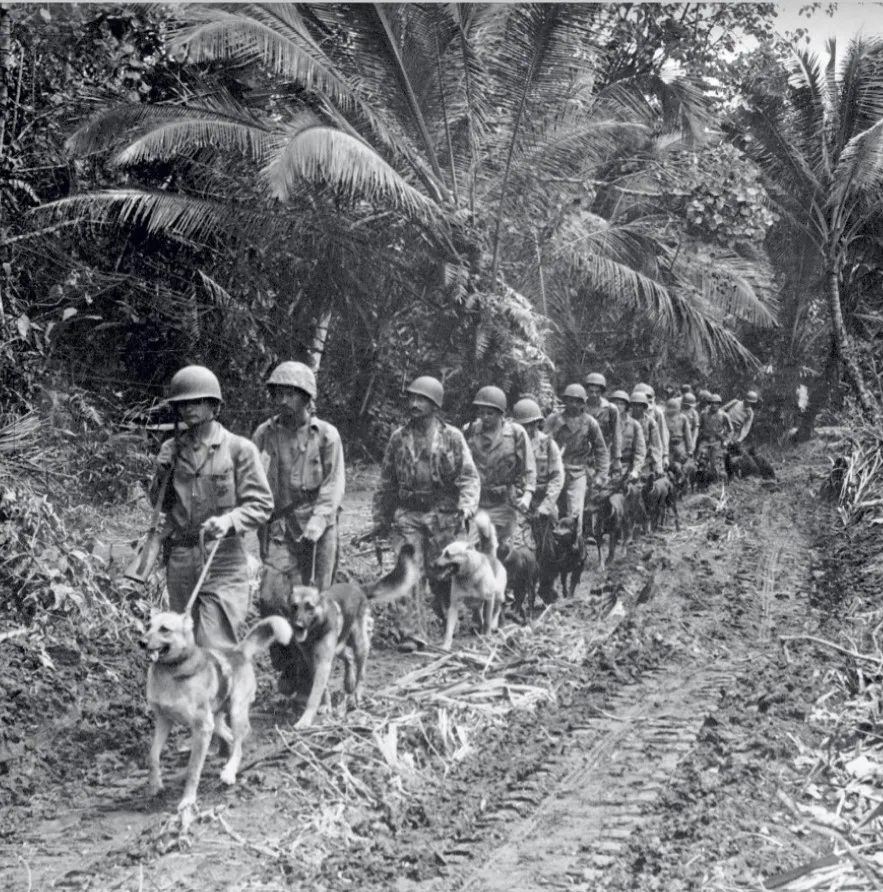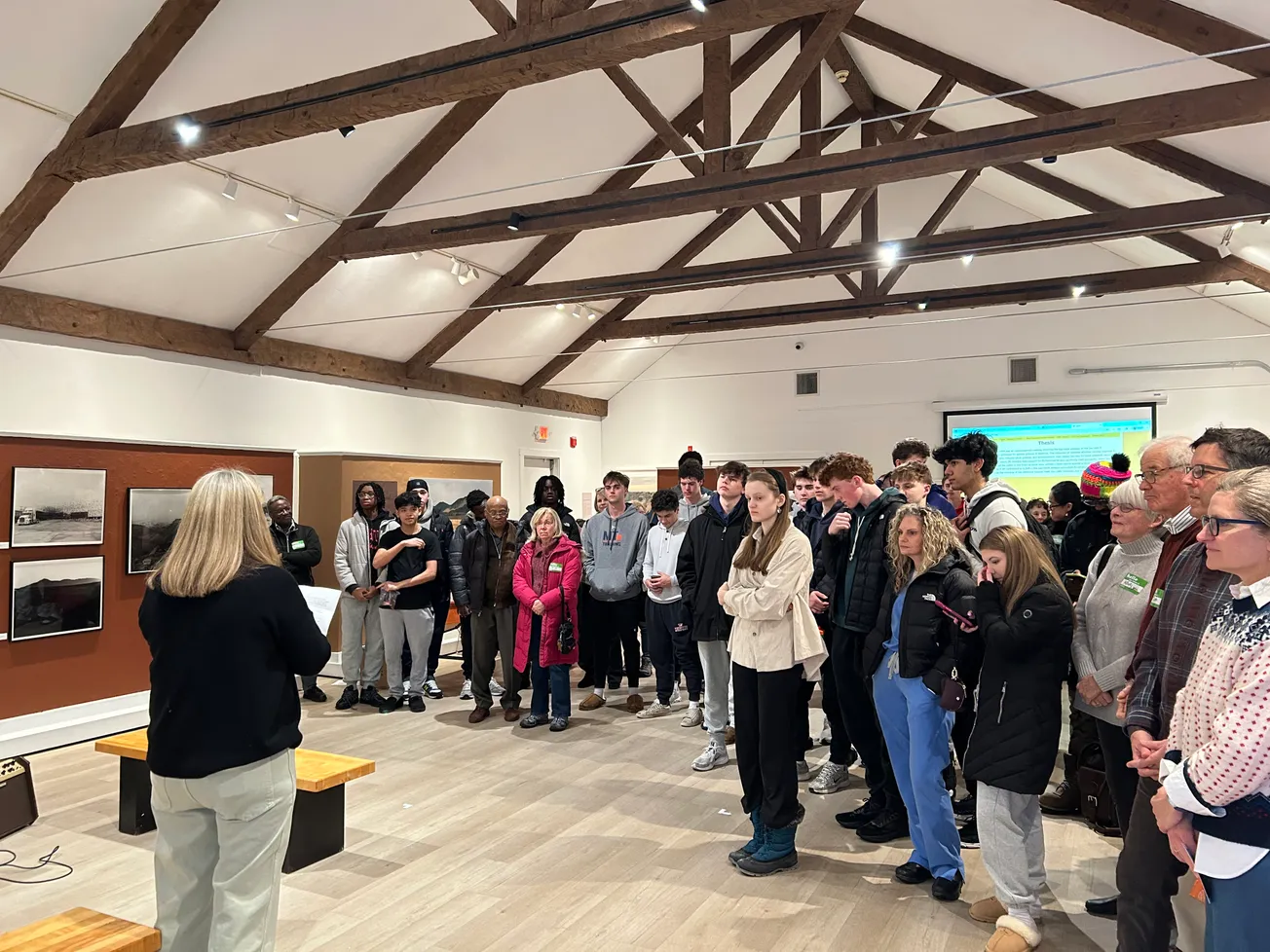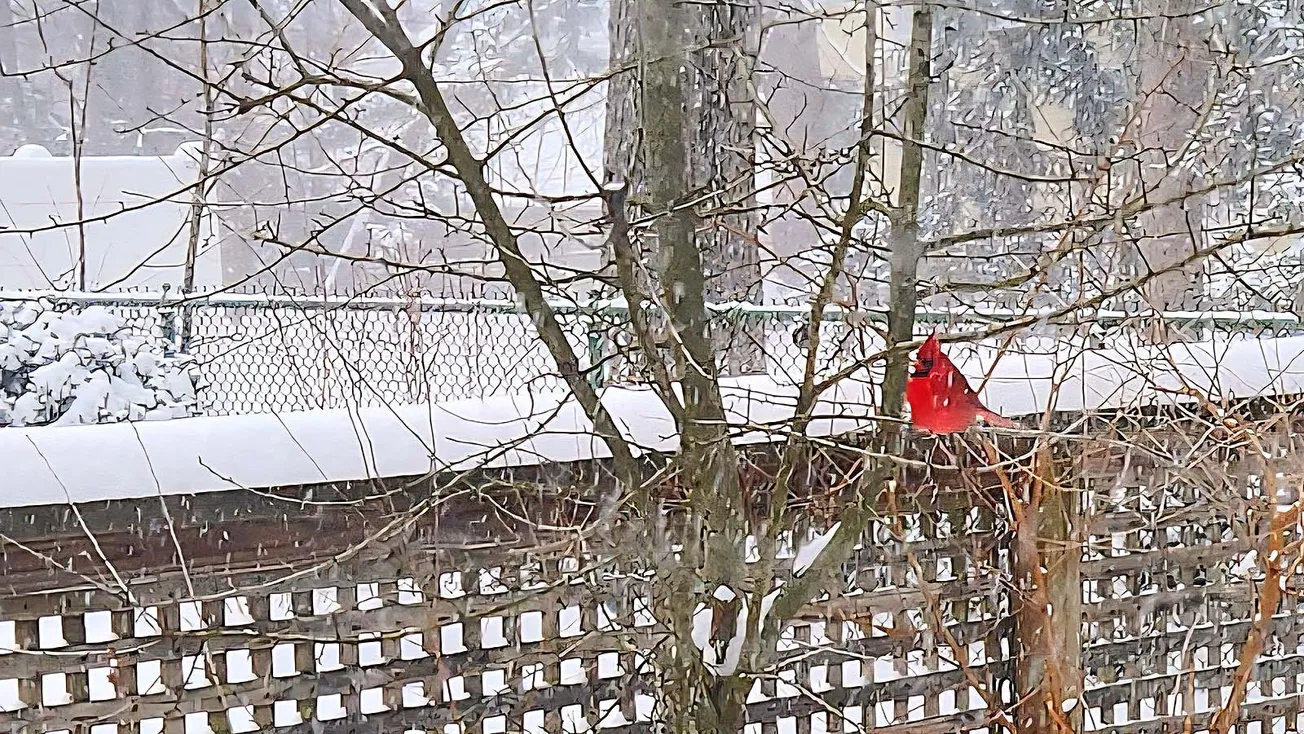Table of Contents
Military dogs became officially recognized on March 13, 1942, when a private organization, Dogs for Defense, was established to recruit the public’s dogs for the U. S. military’s War Dog Program known as the K-9 Corps.
The first K-9 Corps unit assigned to a tactical operation in the Pacific Theater during WW II, as an experimental detachment, was requested by Gen. Douglas A. MacArthur, supreme allied commander-in-chief. The unit was headed by 2nd Lt. Robert Johnson, of Winchester, Mass., being the first to train and to take these war dogs into combat.
Their odyssey began June 14, 1943, when they shipped out from Fort Mason, San Fransisco, Calif., on board a freighter bound for Australia. Once there, they were transferred to another ship for Port Moresby, New Guinea, arriving on July 29.
There were eight war dogs, six were scouts and two messengers, all German and Belgian Shepards.
Late in August, the unit received orders to join the Australian Corps of the Allied New Guinea force who were part of a force driving back the Japanese. The K-9s spearheaded the reconnaissance patrols pushing through the jungles.
The scout dogs repeatedly spotted Japanese soldiers or groups of natives not known to be in the vicinity. The messenger dogs, plunging through streams or shouldering a path through 6-foot Kunai grass, kept contact with troops following the advance.
It was noted in a report: “Patrols led by the dogs were never ambushed and suffered no casualties.”
By the time the unit was reassigned to the Marine Raider Regiment of the 6th Army for the New Britain campaign, the dogs had made such a reputation, that they were given air transportation in a plane with a group of staff officers.
In the Cape Gloucester attack on Dec. 26, the dogs went ashore with the first wave. While the Marines held on and consolidated the beachheads, the dogs stood guard at night, giving warning of Japanese attempts to infiltrate.
The K-9 Casual Detachment led the advance up the coast from the cape. They were a huge success, the scout dogs constantly alerted to the Japanese, from single stragglers to full platoons. And the messenger dogs came through when torrential rains poured down, blanking out the walkie talkie radio sets.
The experiment was a success. In a period of 53 days in New Britain, the dogs patrolled 48, up until March 1944.
The War Department officially credited the dogs with leading patrols, that killed 180 Japanese soldiers, and capturing 20 prisoners; and the number of Marines lives saved by the Army K- 9 unit, small as it was, was many times more.
Johnson had high praise for the animals’ bravery, obedience and intelligence.
“We got to love these dogs, they lived with us, shared our rations and lots of times, out in the steaming jungle, I’ve seen a thirsty soldier divide the last bit of water in his canteen with his dog,” he said.
As what happens in all wars you have casualties and eventually, five dogs died while on duty and three, just before they were to be sent home, were found to be infected with typhus and had to be destroyed.
To honor the service and sacrifice of the U. S. Military Working Dogs, the 13th of March is now recognized as National K9 Veterans Day.
— Tom Sevigny is a member of the Winchester Historical Society.








